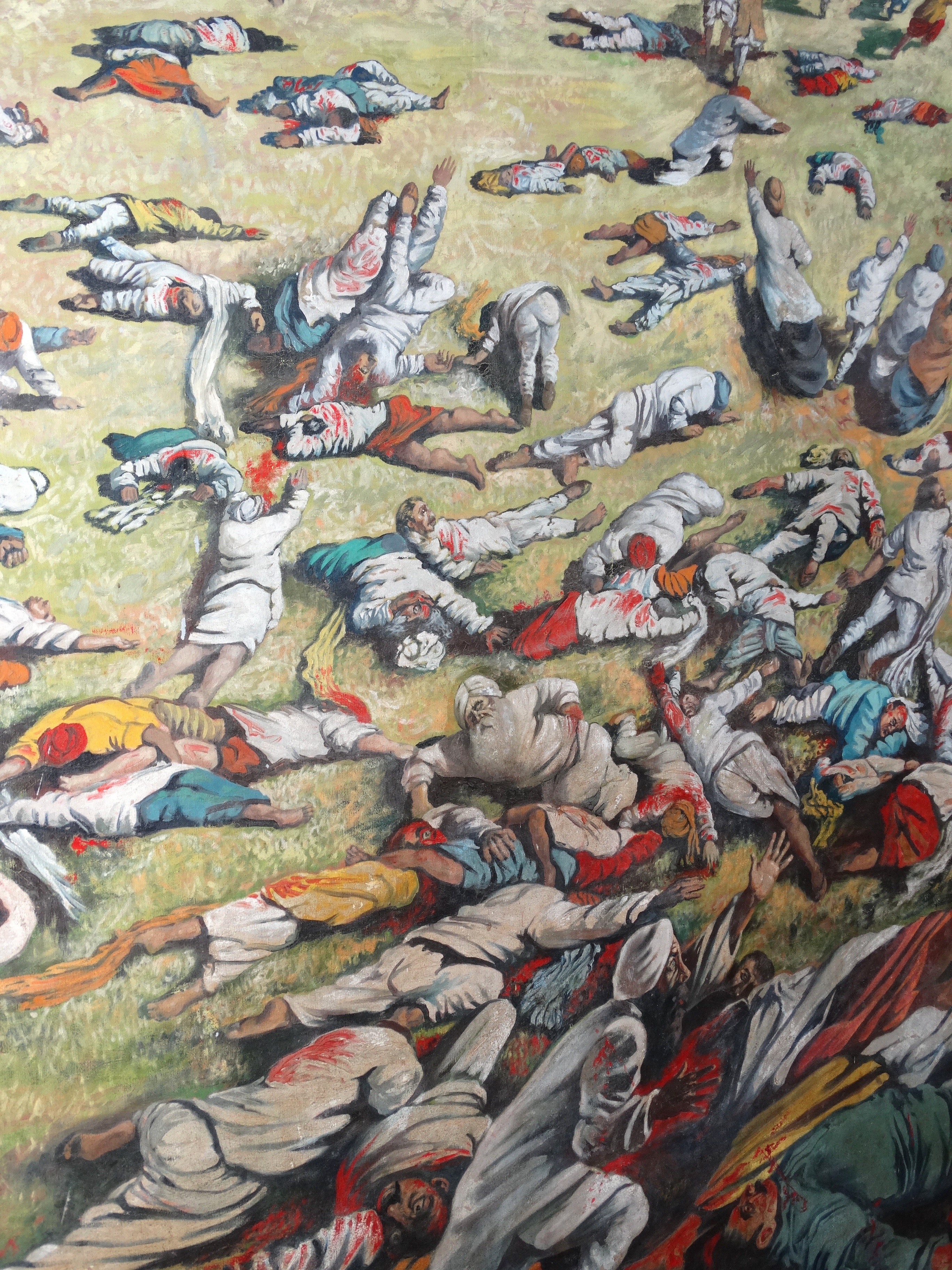99 years ago on Friday, one British general marched his soldiers into an enclosed garden in the vicinity of the holy Golden Temple and sealed off the exit. A crowd of unarmed men, women and children were assembled to celebrate the Sikh festival of Baisakhi. Troops opened fire on the crowd, shooting until they ran out of bullets. At least 379 people were killed, and 1,200 more were wounded. The dead and wounded were abandoned, with a curfew still in place to prevent relatives from retrieving bodies or helping the injured.
In today’s law and parlance, the Amritsar Massacre is a crime against humanity. We are still waiting for an apology.
The closest was five years ago, when David Cameron visited Amritsar and described the event as “deeply shameful”. Personally, I think deeply shameful things should be apologised for. The Prime Minister evidently disagreed. Asked if he would apologise on behalf of the British state, he could only peevishly reply “I think there is an enormous amount to be proud of in what the British empire did and was responsible for. But of course there were bad events as well as good events. The bad events we should learn from and the good events we should celebrate.”
Think about the reaction if any of us gave that response to something we had done and deemed “deeply shameful”.
So the obvious argument: Mr Cameron didn’t personally give the order, most of us weren’t even born. People like to hide behind this, and it sounds immediately intuitive.
But this is what Mr Cameron said about Bloody Sunday in 1972: “I know that some people wonder whether, nearly 40 years on from an event, [if] a prime minister needs to issue an apology….on behalf of the government, indeed, on behalf of our country, I am deeply sorry.”
He said almost exactly the same thing about Hillsborough: “On behalf of the government – and indeed our country – I am profoundly sorry”. And he was “deeply sorry” about deaths at Stafford Hospital.
Furthermore, the British Empire was conducted as the realm of the British crown and in its name. By today’s standards, the Prime Minister acts as the head of Her Majesty’s government. It is their responsibility to convey the apology of the institution of the British state – which was and remains the perpetrator of the crime.
Colonial history is the only subject about which the British attitude to our own past is so immediately defensive. It is as if we think that as soon as we apologise for any imperial wrongs we have conceded the immorality of our entire history and existence as a nation.
This is not about ‘leftie self-hatred’. Britain is a far more equal, peaceful, and tolerant country than most. But that isn’t a cover we can use to never apologise for our wrongs.
We proudly set ourselves high ambitions, and we should be judged by them. Fairness, respect, decency, integrity – these are surely amongst the ‘British values’ we all celebrate. Yet it could well happen that on the same day, the British government sends our armed forces into conflict against one despot guilty of crimes against his own people and refuse to apologise for our own. I don’t want to see hypocrisy among those values.
For those of us amongst the Indian diaspora around the world, every anniversary is a fresh reminder of the steadfast refusal of a century of British governments, left and right, to show the most basic form of respect: remorse. It isn’t that British leaders happen to have forgotten to issue an apology because it just hasn’t come up. It has been asked for and explicitly refused on multiple occasions. What message is that supposed to send?
If principle is unpersuasive, consider the optics from a strategic perspective. Post-Brexit, any new trade will not be Empire 2.0. We’ll give and take, and should probably consider the optics of refusing to acknowledge our past ‘relationship’ with those countries to whom we give the glib euphemism of ‘Commonwealth friends’. This is not the biggest issue to the Indian government, but it is not a non-issue either. It is a symbol of a wider problem that the British government still does not really treat commonwealth countries as equal partners, but something we take for granted as being there for our benefit. ‘We can leave the EU because we’ll always have India!’ Well no, not really. You don’t ‘have’ India. You trade as equal partners. Apologising for our crimes against humanity is a small but necessary step: remorse, respect, equal partnership.
In one year’s time, Britain will have just left the European Union. So to the PM (TM, JC or whoever else): take a trip to India, get the ball rolling on that trade deal and a New Commonwealth relationship – and take a day out of your schedule to come up to the Golden Temple, bow in respect at the Jallianwala Bagh and apologise. It costs you nothing – it means something to us.

